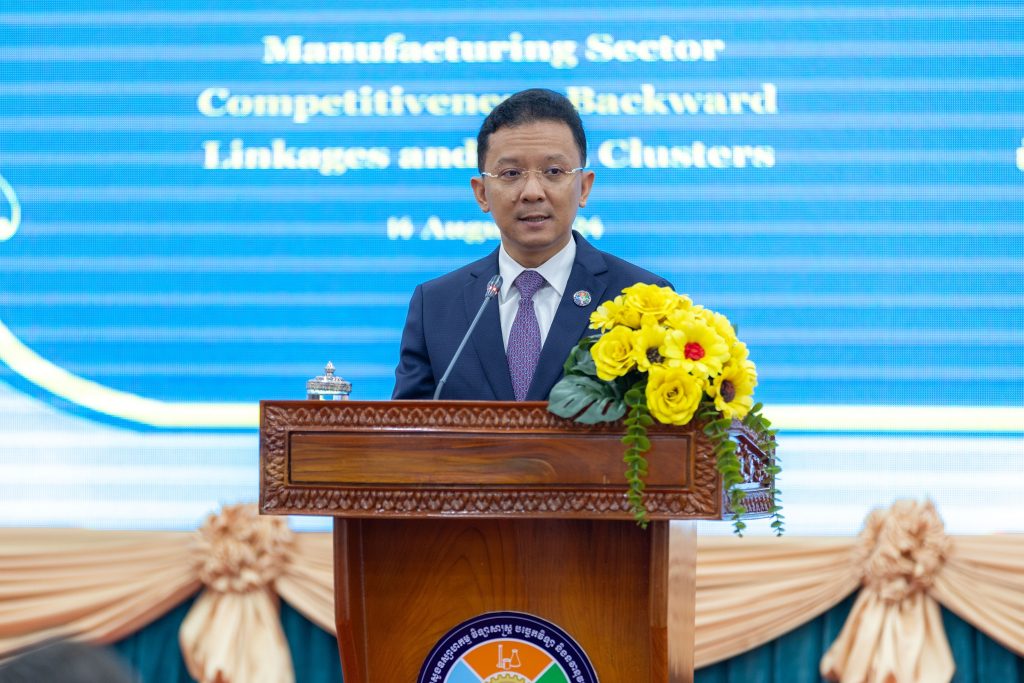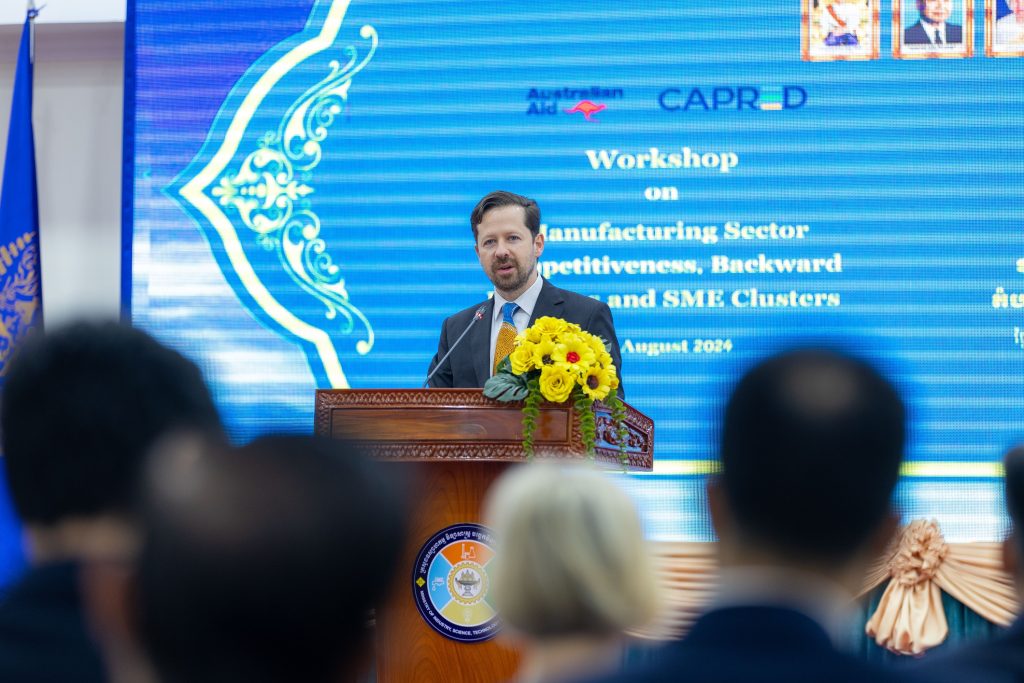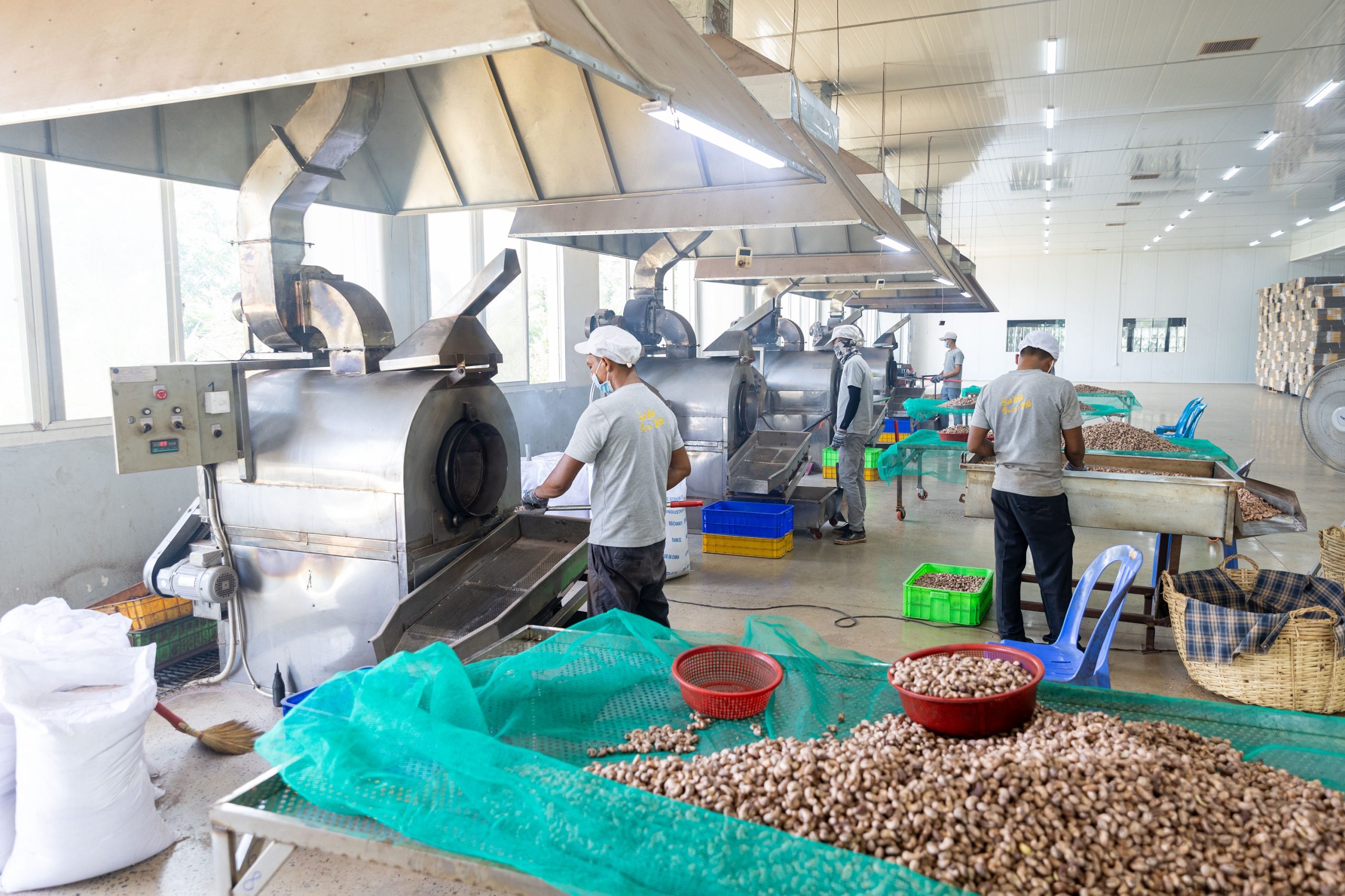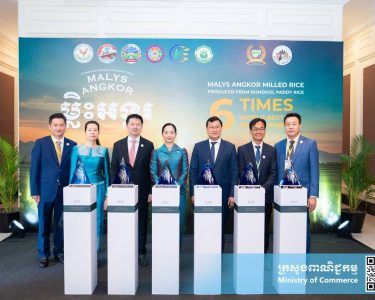Cambodia Investment Review
The Ministry of Industry, Science, Technology & Innovation (MISTI) of Cambodia partnered with the Australian Embassy, through its CAPRED program, to conduct a workshop aimed at enhancing the competitiveness of Cambodia’s manufacturing sector. The event focused on the sector’s competitiveness, the development of backward linkages, and the formation of small and medium-sized enterprise (SME) clusters.
Despite notable progress in Cambodia’s manufacturing sector, the industry continues to rely heavily on imported raw materials, underscoring the need for diversification and stronger local supply chains. The workshop brought together key stakeholders to explore tools, policies, and programs essential for addressing these challenges and integrating SMEs into the broader value chain.

Contribute Significantly To Cambodia’s Economic Development
H.E. Hem Vanndy, Minister of Industry, Science, Technology & Innovation, emphasized the sector’s potential to contribute significantly to Cambodia’s economic development. “Cambodia’s manufacturing sector holds immense potential for fueling economic growth and job creation,” he stated. “This workshop is an important step in transforming knowledge and insights into actionable strategies that will elevate our manufacturing sector to the next level of development.”
The collaboration between MISTI and the Australian Embassy represents a concerted effort to address the challenges faced by the sector. The Australian Chargé d’affaires, Andreas Zurbrugg, reiterated Australia’s commitment to supporting Cambodia’s economic growth. “Australia is committed to supporting Cambodia’s economic growth and diversification. By strengthening the manufacturing sector, we are creating opportunities for businesses to thrive and for Cambodians to prosper,” Zurbrugg noted.
MISTI’s role in advancing Cambodia’s industrial development is aligned with the government’s Pentagonal Strategy, which aims to diversify the economy and reduce reliance on imports. The Ministry is focused on fostering an entrepreneurial ecosystem, developing national quality infrastructure to support local industries’ integration into global value chains, and promoting the establishment of SME clusters. These efforts are designed to stimulate job creation and build a more sustainable, resilient, and inclusive economy.

The Establishment Of National Quality Infrastructure
Australia’s CAPRED program supports these initiatives by providing policy assistance and resources for the development of micro, small, and medium-sized enterprises (MSMEs). The program also emphasizes the establishment of national quality infrastructure and the promotion of gender equality, disability, and social inclusion within the sector.
The collaboration between MISTI and Australia is seen as a critical step toward addressing the existing gaps in Cambodia’s manufacturing sector. By focusing on local supply chains and SME integration, the partnership aims to reduce dependency on imported materials and enhance the sector’s overall competitiveness.





